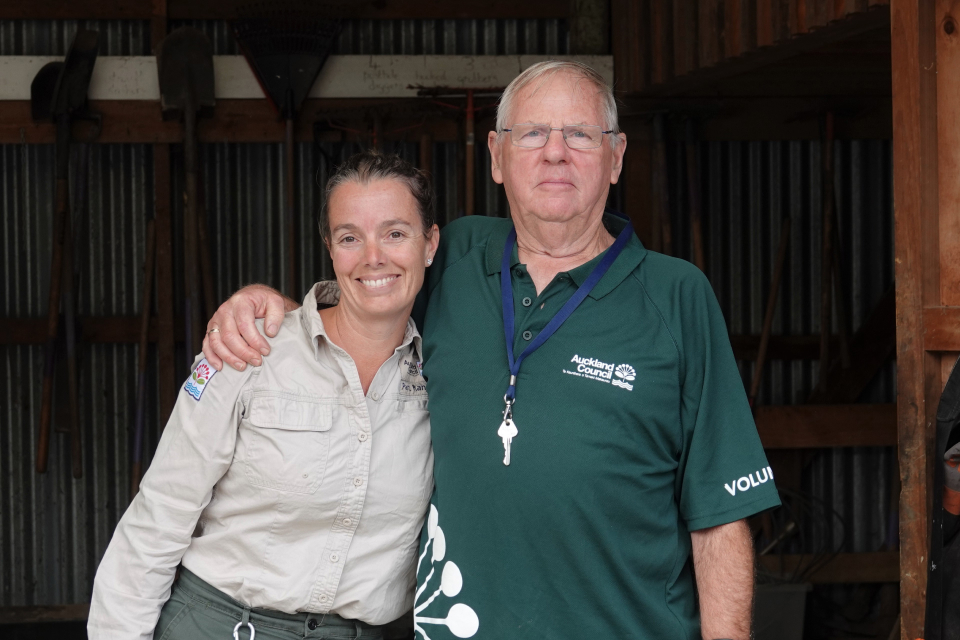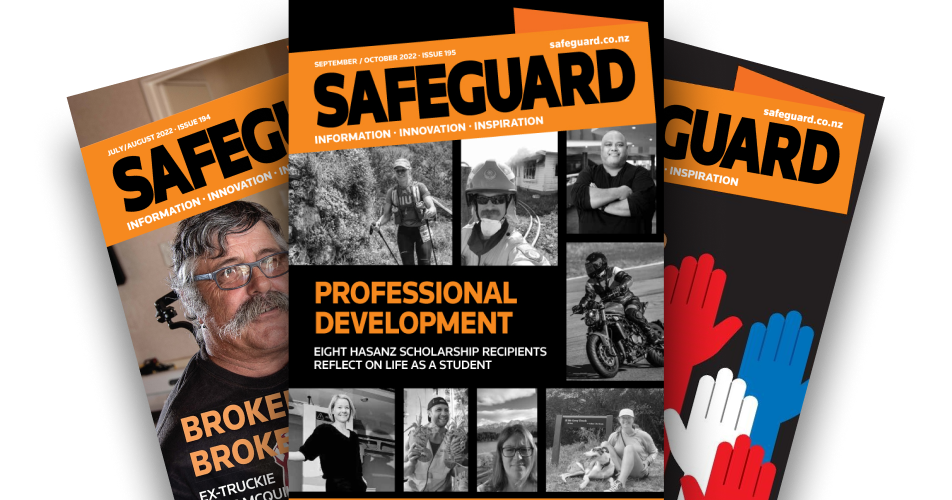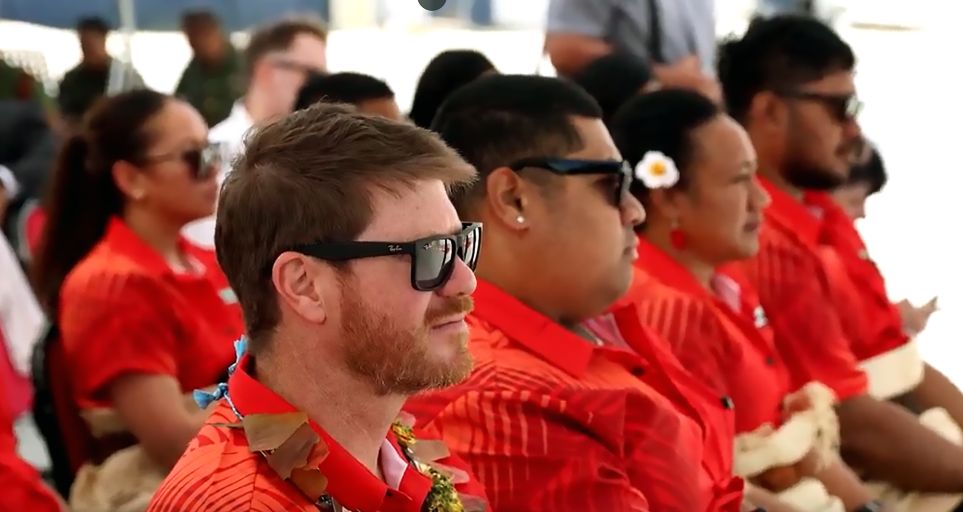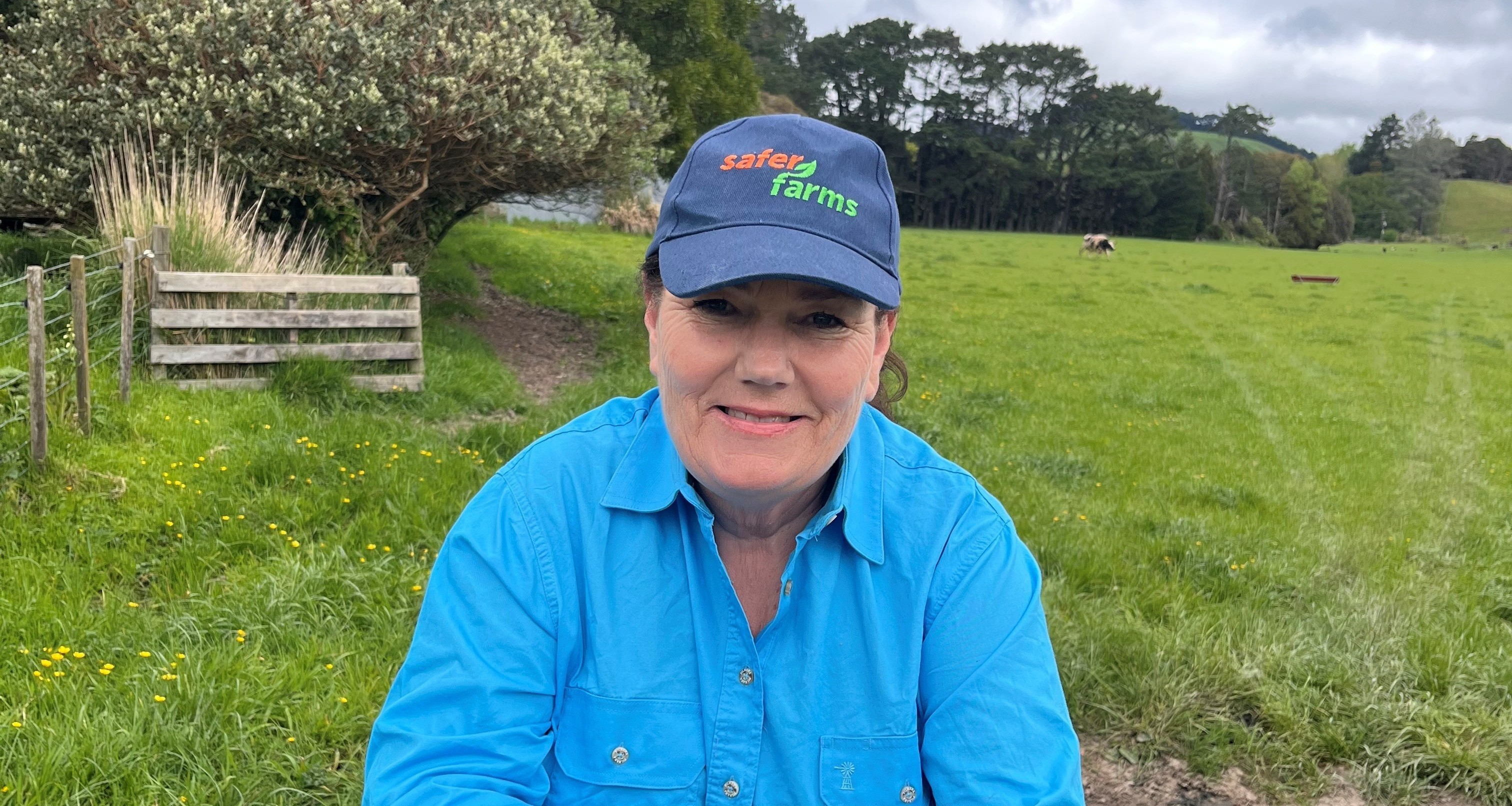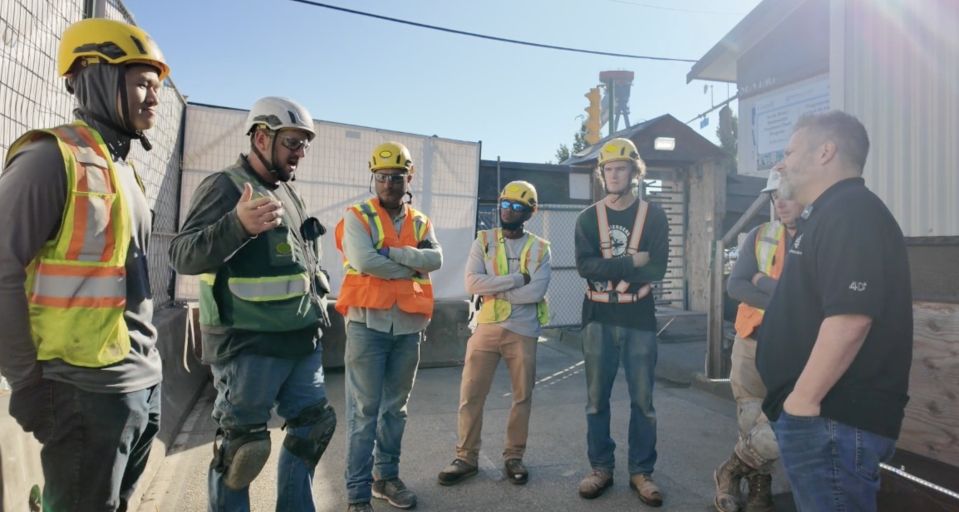Being a park ranger has its downsides, and they can be highly distressing – from encountering people in distress to experiencing the worst kinds of antisocial behaviour. But despite this, Wendy Ellis reckons it’s a terrific job, and she should know – she’s been Auckland Council’s ranger at Long Bay Regional Park for more than 20 years.
“I really love doing this job. It’s not all roses, but it’s really fulfilling. I get to work with great people and contribute to environmental outcomes I’m passionate about.”
It’s a complex, all-encompassing role with many moving parts: managing visitors and their experience, campgrounds, picnic bookings, school groups, conservation programmes, pest control, sand dune management, dealing with volunteer groups, and maintaining relationships with stakeholders such as the Department of Conservation and the police.
“We might not do all the work, but it’s facilitating and guiding and giving advice on things like roads, conservation areas, picnic areas, tracks, cycleways, fences, gates, toilets, buildings. It’s a really diverse job. No two days are ever the same.”
When we speak, in early December, the three-month summer season has just started and Ellis has been joined by two extra staff, but for much of the year she’s on her own. With an open-ended workload, the potential for doing too much and not switching off is a clear risk.
Burnout collapse
So it proved towards the end of 2016, when Ellis burned out in a big way.
“I collapsed physically, my body failed, and I struggled to get out of bed for a week. I lost a lot of weight very quickly.”
Looking back, she acknowledges she didn’t have a good work-life balance: living on the park and loving her job, she was working far too many hours. There had also been two suicides and one attempted suicide in the park in quick succession, where Ellis had been first responder – an acutely stressful situation to be faced with.
Other factors included the cumulative effect of facing the potential for violence and aggression from park visitors. “Maybe it was starting to have more of an effect on me, or maybe it was getting worse, I’m not sure.”
She had also recently been involved in an archaeological dig within the park in which 28 koiwi were uncovered and uplifted. While it was incredible to have been involved in the project, it was also emotionally taxing.
After seeking medical help she took three months off to recover. It was during that recovery period that she started asking questions about the nature of park ranger work and the strain it can place on mental wellbeing. Questions, she discovered, which hadn’t been addressed or even acknowledged before.
“My journey back to work was interesting. My injury was a bit different. It was a real challenge to work my way back in and try to be understood and supported.”
In the process she began to speak out about her journey and how she had learned – the hard way – to put in place boundaries for herself to separate work from the rest of her life, or as she puts it, “managing my expectations of myself”.
Other council staff responded and shared their own stories. The process turned her into a mental wellbeing champion within the Council, a role she carries on to this day.
Ellis is quietly proud that by speaking up she has helped to create a safe space for others to step forward and speak about mental health and start the process of changing how work is done so it is more protective of mental wellbeing.
As well as being a health & safety representative, Ellis is also a member of the Council’s wellbeing ambassador programme. “I guess I become one by default when I started asking too many questions and sharing my view of things.”
Christmas challenge
Long Bay Regional Park is popular year-round but is a particular a magnet for visitors on Christmas Day, when people queue in their cars before the gates open at 6am in order to secure their favourite spots. Between 15,000 and 20,000 thousand people typically visit on a fine day. In terms of anti-social behaviour, Ellis says people’s high expectations of the day can contribute.
“People have plans, things they want to do. They’re playing volleyball or cricket and having such a joyous time – it’s great to be able to host that.”
On the downside, she’s encountered two groups literally fighting each other over a favourite spot, while on another occasion someone had brought a chainsaw and was chopping down trees to make poles to support a volleyball net.
In some situations it is clear when the police need to be called, but there are many grey areas where the ranger needs to take action to calm the situation and avoid later trouble. These confrontations, she says, can have a cumulative effect on a ranger’s mental equilibrium. “You go from one challenging moment and carry over that feeling into the next one, and so on. It builds up and you can get frustrated as well as exhausted.”
Specific issues
It’s in the nature of the ranger’s job that each day can come with surprises. Ellis is quick to emphasise most of them are happy encounters with the public, volunteers and specialists who come into the park to enjoy it or carry out specific roles, but there are also regular engagements with the darker side of human nature.
“Sadly, our open spaces are quite commonly places people go to end their lives. I can’t remember a year where I haven’t had one. Sometimes several. Including finding people part-way through.”
Then there’s indecent behaviour, which she describes as “another minefield” to grapple with, including public masturbation, flashing, and sex acts on the beach.
Ellis has been physically grabbed by men and her personal space intruded upon many times, and is now ensuring such incidents are recorded and discussed as part of preparing safety plans.
Speaking out about this aspect of her role has enabled others at the Council to chip in with their own experiences and help normalise discussion about mental wellbeing and the harm that arises from the situations she has so openly described.
Recording such assaults as health & safety incidents is difficult, she says, but necessary. “It’s a hard thing to say out loud. When someone does that to you – labelling it that way. It’s absolutely correct but it’s different to tripping over and hurting your ankle.”
Enabling authenticity
At several points in our talk Ellis emphasises that 99% of her job is challenging but enjoyable, that the occasional bad moment shouldn’t obscure how much she relishes her role. At the same time, she is determined to bring out from the shadows the realities of a ranger’s life and the hazards they face, so that the health & safety team and senior managers are properly informed and can take action. When she gets to sit around the top tables – as she often does – she can provide a corrective to work-as-imagined.
Thinking back to her burnout episode, Ellis views it as an emphatic lesson in how physical and mental health are closely linked. She is buoyed that the Council is now seriously engaging with mental wellbeing as a key component of its health & safety programme.
“It’s very freeing when you can be authentic. The magic is to be who you are and feel safe.”
